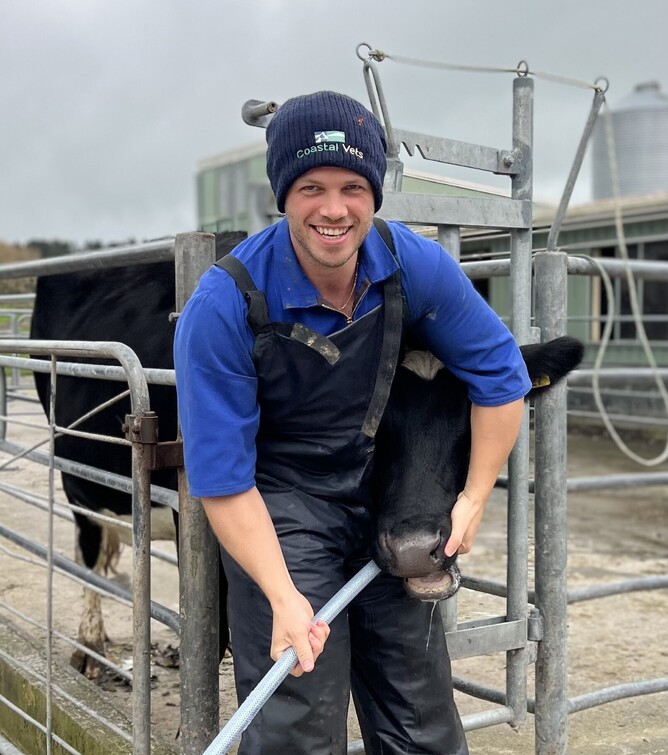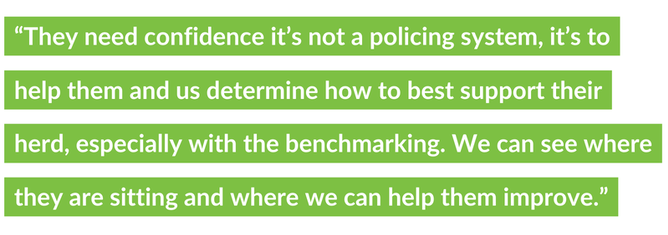In the future, the role of a veterinarian will be more than solving problems, technology will be widespread making practical tasks less common, data interpretation more extensive, and transferring knowledge will be vital. This is a view echoed by many and explained by Callum Taylor from Coastal Vet Services in Opunake.
“Consulting work will continue to grow, farmers already want to learn more about things like Staph and Johnes, when we diagnose, they want to learn more about it,” Callum says.
“We aren’t just the ambulance at the bottom of the cliff, solving problems, we are transferring more knowledge to support our farmers more than ever.”
Farmers have a lot of data available and he sees a big role for vets in interpreting data and turning it into something practical.
“Some practices are already doing it well and it’s only going to continue to grow,” he says.
“There is a risk to our profession too but I think we have a prime opportunity to grow and expand to be helpful in that space.”
“As vets, we want to share knowledge with farmers so they don’t stay static.”
He acknowledges that welfare is a highly significant issue, with increasing attention from milk processors and their customers, and he believes this interest will continue to grow. He also notes that farmers are aware and are thinking about it more often, making WelFarm crucial for the future.
“For some farmers, it’s just 'another thing to do' and it depends on their priorities, but the conversations are changing.
“More are starting to see the need to be proactive, whether it's for their productivity or to ensure and protect the sector’s value.”
To assist farmers who are skeptical about the direction things are heading or those who haven't yet engaged with WelFarm, he believes effective communication is crucial. Vets need to take the time to explain what WelFarm is and what goals we're aiming to achieve.
“As the programme grows, farmers will talk to other farmers and what a farmer will talk about is different to what a vet will say.”
He appreciates the programme is owned by a range of veterinary businesses, including Coastal Vet Services, for credibility to farmers and vets that the system will add value and is reliable. And that it’s the vets and techs in the clinic doing the work.
And his favourite part is the automation that comes with the Animal Wellbeing Plan template. Once a plan is completed within the WelFarm portal an automated notification lets Fonterra (and Miraka in Waikato) know the plan has been completed before their shed inspection.
“For us as a clinic, it has made the whole process a lot less stressful, it lets everyone do their job without the worry of the administration.”


